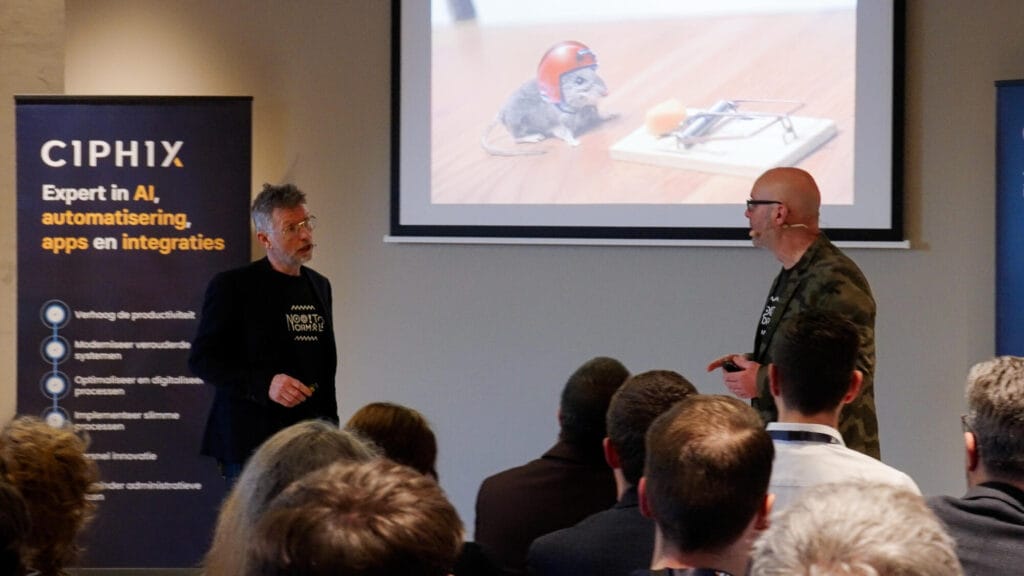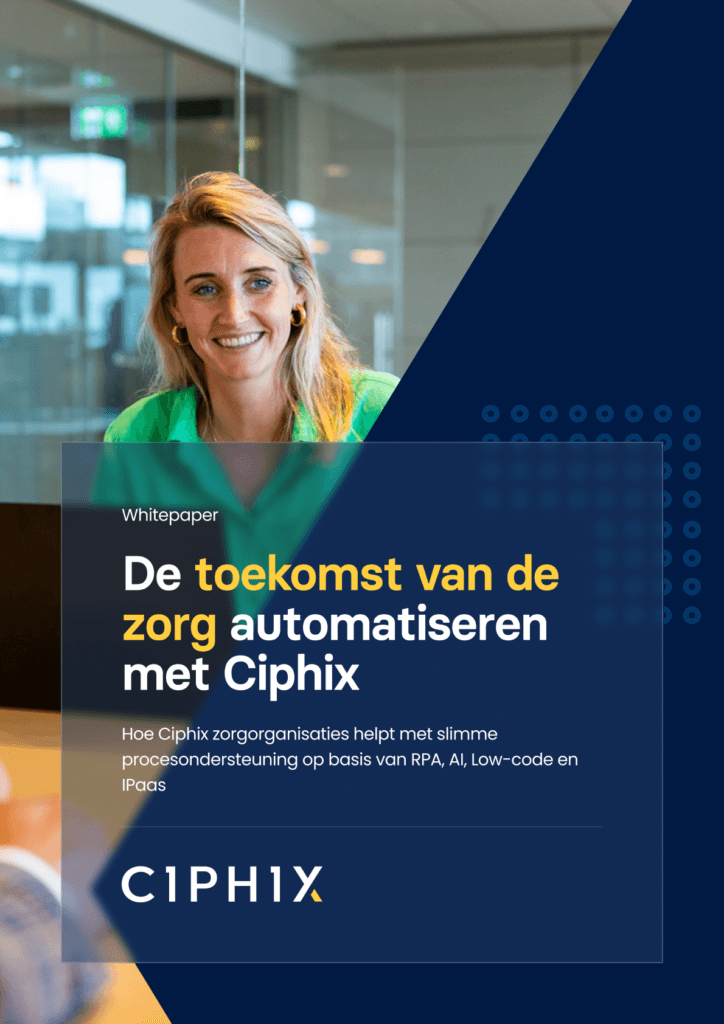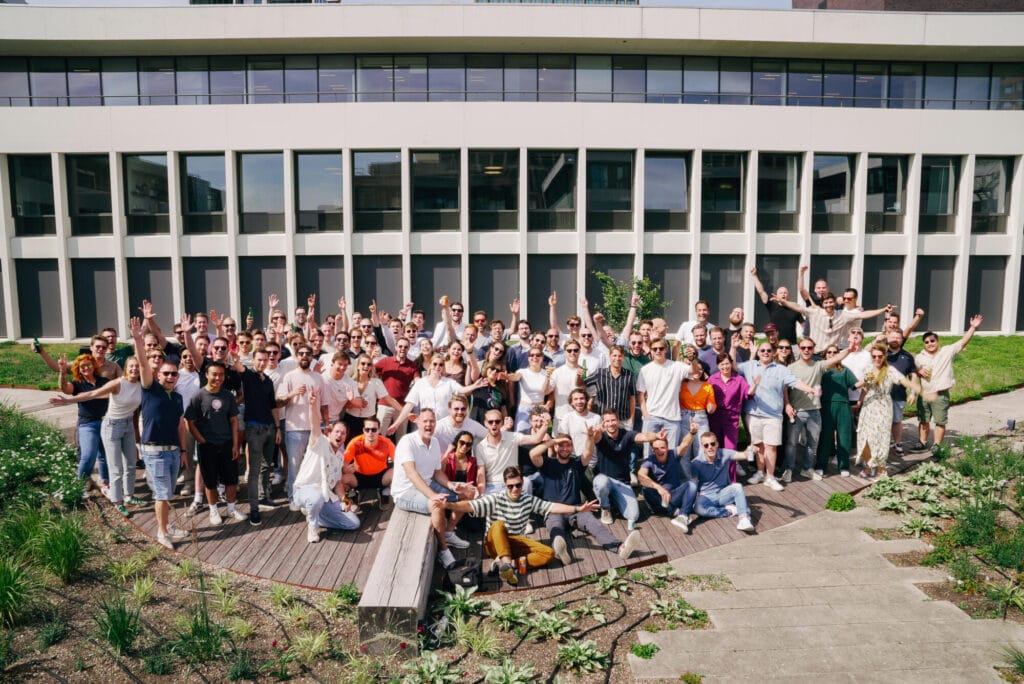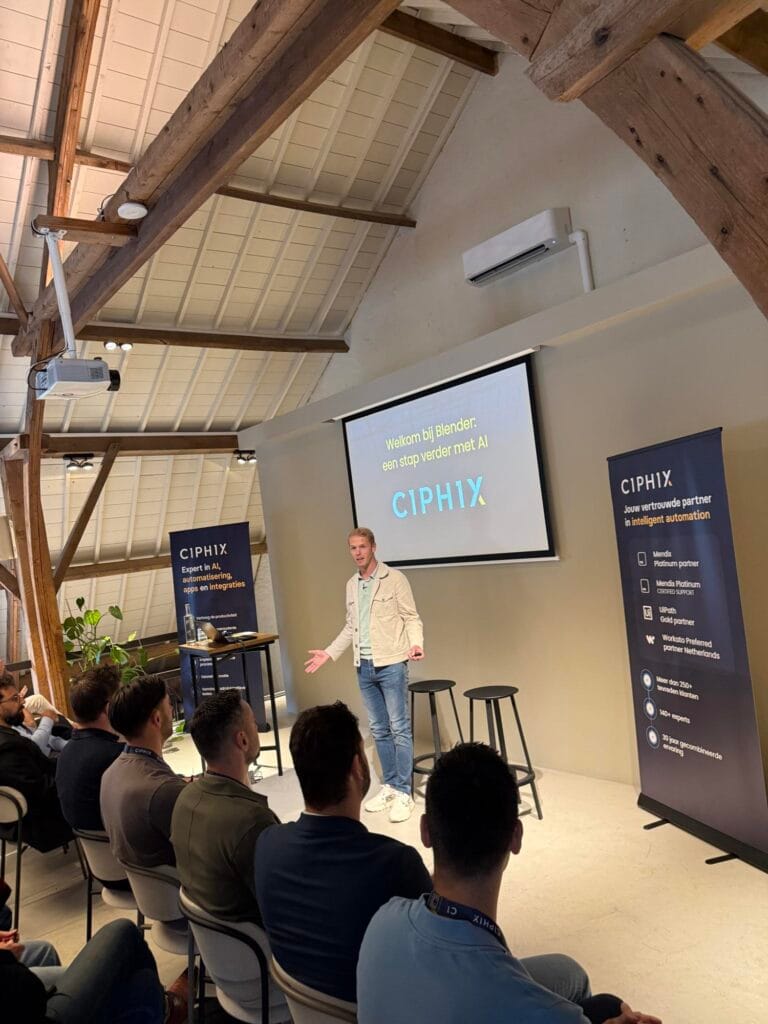Digitising processes
In business, it’s important to stay ahead in an ever-changing world. At the same time, growing, working more efficiently and providing a service that makes customers happy remain primary goals. But while the market is evolving at lightning speed, it can feel like your team is bogged down in outdated systems and inefficient workflows.
Sound familiar?
- Important tasks hidden in shared mailboxes or Excel sheets
- Apps being used that are not approved by your IT department (Shadow IT)
- Numerous calls to keep track of and solve small problems
These inefficiencies not only cost you time, but also keep you from achieving your business goals. The good news? These processes can be digital and simpler.
Your move!
Expanding existing systems
Maintain your core systems and add integrated, flexible apps that work seamlessly with your processes.
Replace inefficient tools
Say goodbye to Excel sheets, Shadow IT and applications that don’t meet your requirements.
Design and optimise
Create the perfect digital process to help your team work more efficiently and effectively.
We make things clear
At Ciphix, we are more than just consultants; we are your strategic partner in digital transformation. With our deep expertise in AI, automation and apps, we provide customised solutions, valuable knowledge and the support your organisation needs to grow and stay ahead in the digital world.
Our team of analysts, architects, tech specialists and designers are ready to optimise your business processes. With customised applications and smart technologies, we help your organisation work more efficiently and be ready for the future.
What people say about us
An efficient way of working
Open and flexible apps that connect seamlessly to an optimised process ensure a grip on the business and insight into the workload.
Beat the competition
Successful digitisation gives you more room for growth and more time to innovate
Even better service
Through digitised processes a faster service, with fewer errors
Lower cost
Less Excel, fewer clicks and fewer errors = more time for the things that really matter
Data-driven decisions
Extract valuable data from digitised systems
Frequently asked questions:
Why is it important to digitise business processes?
Digitisation offers several benefits, including improved efficiency, cost savings and better data analysis. It enables companies to respond faster to market changes and customer needs, and to optimise internal processes.
What steps should I take to digitise my business processes?
Start by mapping all the current processes within your organisation, from procurement to HR to logistics. Then determine what information is already available digitally and identify areas that can be optimised. It is important to take stock and understand what needs to be done before purchasing new software.
What are the biggest pitfalls in digitising processes?
Common pitfalls include skipping thorough process analysis, choosing inappropriate software solutions and ignoring the human factor, such as employee training. A structured nine-step approach can help avoid these mistakes.
How do I determine which work processes to digitise?
Analyse how current work processes run and identify inefficiencies. Processes such as expense reports, time sheets and sick notes are often good candidates for digitisation. It is important to identify where the most gains can be made.
What business processes can be automated?
There are several business processes at almost every company that can be can be automated. The most common processes that automatedrd are the invoicing process, inventory management and data entry. Software then then for example for that invoices are automatically prepared and sent and payments are tracked. As a result, fewer errors are made and employees spend less time on administration.
What benefits does low-code application development offer for collaboration between IT departments and other business units in digitising processes?
Low-code application development promotes collaboration between IT and “the business” by providing a visual development environment that is easily understood by non-technical users.
When should I use Mendix for process automation versus RPA?
Mendix application development and workflow, and RPA can be highly complementary. Use Mendix for process automation when you want to model and integrate complex business processes across systems, with a focus on flexibility and user experience. Choose RPA when your primary goal is to automate repetitive, rule-based tasks without changing the underlying systems.
Your move
Are you looking for a partner who can help optimise, automate and digitise?
We will help you further.






















